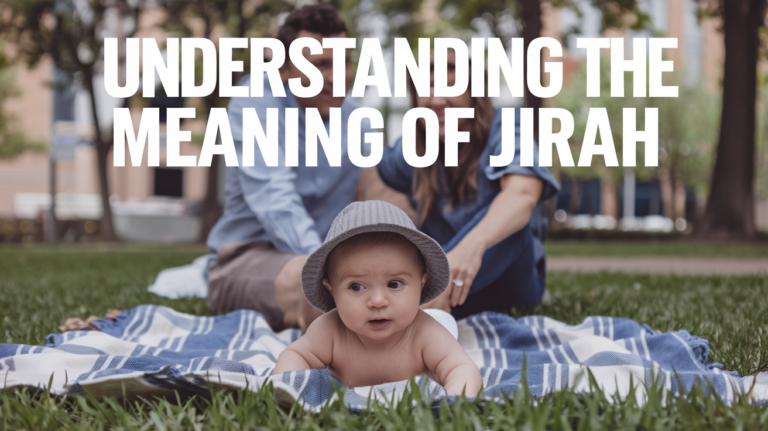Connections are at the core of our close to home prosperity, and when a couple’s association starts to disintegrate, it can prompt dissatisfaction, hatred, and profound agony. Whether you’re managing unfortunate correspondence, unsettled struggle, or an absence of closeness, Relational Life Therapy
(RLT) offers a strong and extraordinary methodology for couples trying to mend and become together. By zeroing in on moral obligation, open correspondence, and solid limits, RLT gives the apparatuses and system vital for couples to modify their connections and experience further association.
What is Relational Life Therapy?
Relational Life Therapy is a proof based remedial model. It stresses the significance of the two accomplices in a relationship getting a sense of ownership with their feelings, ways of behaving, and commitments to the elements inside the relationship. RLT is based on the comprehension that people are formed by their life as a youngster encounters, relational peculiarities, and past connections, all of which can profoundly impact how they interface inside their heartfelt connections.
Not at all like conventional treatment draws near, RLT centers around testing obsolete examples of conduct that lead to profound separation and cultivates a better approach for connecting with each other that supports close to home development and shared regard. For couples, RLT fills in as both a mending cycle and a way toward development, where the two accomplices are urged to foster more noteworthy close to home development, compassion, and mindfulness.
The Center Standards of Relational Life Therapy for Couples

1. Moral Obligation: One of the focal fundamentals of Relational Life Therapy is the idea of moral obligation. Rather than faulting one’s accomplice or outer conditions for relationship battles, RLT urges every individual to take responsibility for their own close to home responses and ways of behaving. This shift from exploitation to individual responsibility cultivates better communications, assisting couples with keeping away from attempts at finger pointing that frequently prompts further distance and separation.
By and by, this implies each accomplice should consider their own close to home reactions, necessities, and previous encounters that impact their ongoing responses. By taking responsibility for activities, people in the relationship are engaged to roll out sure improvements, which can move the general unique between the accomplices.
2. Testing Negative Examples: Many couples fall into damaging examples of conduct, like preventive ness, withdrawal, or struggle aversion. These examples frequently emerge from unsettled close to home torment or neglected needs and can make a pattern of disengagement. Relational Life Therapy helps couples recognize and break these negative examples by offering instruments for more cognizant, conscious cooperation.
In RLT, couples are urged frankly and weak about their feelings and fears. This transparency cultivates a climate where the two accomplices have a solid sense of security to communicate their actual selves, unafraid of judgment or dismissal. Through this cycle, couples can figure out how to participate in better, more useful discussions that advance comprehension and goal.
3. Profound Uprightness and Responsibility: Close to home trustworthiness includes being completely mindful of and legit around one’s sentiments and requirements. In Relational Life Therapy, couples are urged to foster profound honesty by figuring out how to communicate their feelings in an unmistakable and conscious way. This degree of profound trustworthiness permits accomplices to really hear and see one another, which is the establishment for more profound association and closeness.
Responsibility likewise assumes a huge part in this cycle. Accomplices are urged to consider each other responsible for their activities while keeping a merciful and non-correctional position. This harmony between holding each other to sound norms and offering basic reassurance empowers the two accomplices to develop exclusively and as a couple.
4. Fixing Trust and Building Closeness: For some couples, trust might have been harmed after some time because of betrayal, deceptive nature, or profound disregard. In these circumstances, Relational Life Therapy can be an amazing asset for remaking trust and closeness. Through legit discourse and a promise to profound straightforwardness, couples can start to fix the harm and work toward a safer and associated organization.
RLT likewise accentuates the significance of restoring physical and profound closeness. By resolving the hidden intense subject matters that add to closeness challenges, couples can reignite their association and partake in a more profound, seriously satisfying relationship.
The Advantages of Relational Life Therapy for Couples

1. Further developed Correspondence:
Clear and genuine correspondence is the foundation of a solid relationship. Relational Life Therapy assists couples with moving past superficial trades and figuring out how to convey their more profound feelings and wants. With further developed relational abilities, couples can determine clashes all the more successfully and make a more grounded close to home bond.
2. Upgraded Profound Closeness:
Close to home closeness goes past actual love. It’s tied in with feeling seen, heard, and grasped by your accomplice. Through RLT, couples can figure out how to be genuinely defenseless, share their actual selves, and make a more profound close to home association that reinforces the relationship over the long run.
3. Compromise Abilities:
Several countenances struggle, yet it’s the means by which they handle it that has an effect. RLT offers couples the devices to determine questions valuably instead of permitting clashes to raise. This prompts better goals and assists couples with trying not to wait for hatred.
4. More prominent Mindfulness:
As each accomplice chips away at self-improvement through Relational Life Therapy, they become more mindful of their close to home triggers, previous encounters, and standards of conduct. This mindfulness improves individual prosperity as well as encourages a seriously understanding and strong relationship.
How Relational Life Therapy Assists Couples With mending
Recuperating in a relationship requires responsibility, persistence, and the readiness to become both as people and as accomplices. Relational Life Therapy urges couples to set out on this excursion together, with an emphasis on common regard, profound obligation, and weakness. By tending to the underlying drivers of profound separation and breaking liberated from destructive examples, couples can accomplish enduring recuperating and development.
RLT accentuation on close to home genuineness, responsibility, and testing negative examples makes areas of strength for couples to recuperate from past damages, remake trust, and experience a recharged feeling of association and closeness. Couples who focus on this remedial methodology frequently find that their relationship turns out to be really satisfying and versatile, furnishing them with a solid organization to weather life’s difficulties together.
The Job of a Skilled RLT Therapist
One of the extraordinary parts of relational life therapy is the dynamic inclusion of a prepared specialist who guides couples through the helpful cycle. A skilled RLT therapist doesn’t simply offer counsel or give an inactive listening ear; all things considered, they effectively challenge undesirable examples and urge the two accomplices to confront troublesome feelings and bits of insight.
The therapist’s job is to make a place of refuge for weakness, where the two accomplices can be open about their feelings of dread and wants, while likewise considering every individual responsible for their close to home development. This direction assists couples with keeping focused as they pursue better approaches to connecting with one another, and it very well may be instrumental in conquering the opposition or protectiveness that frequently emerges in connections.
Long haul Development and Maintainability
While Relational Life Therapy can be profoundly powerful in assisting couples with settling prompt issues, its advantages expand well past the treatment meeting. RLT urges couples to take on new social propensities that advance long haul development and manageability.
This incorporates practices like ordinary registrations, cultivating consistent encouragement, and keeping up with open, fair correspondence. As accomplices keep on developing independently, they can likewise adjust to one another’s advancing necessities, guaranteeing that their relationship stays dynamic and satisfying over the long haul.
End
Relational Life Therapy offers couples an extraordinary way to mend and develop. By cultivating open correspondence, close to home responsibility, and moral obligation, RLT furnishes accomplices with the apparatuses they need to reinforce their bond and explore relationship challenges with more noteworthy flexibility.
Whether you’re battling with correspondence issues, irritating struggles, or an absence of closeness, Relational Life Therapy gives a far reaching system to couples to push ahead together, making a better.















